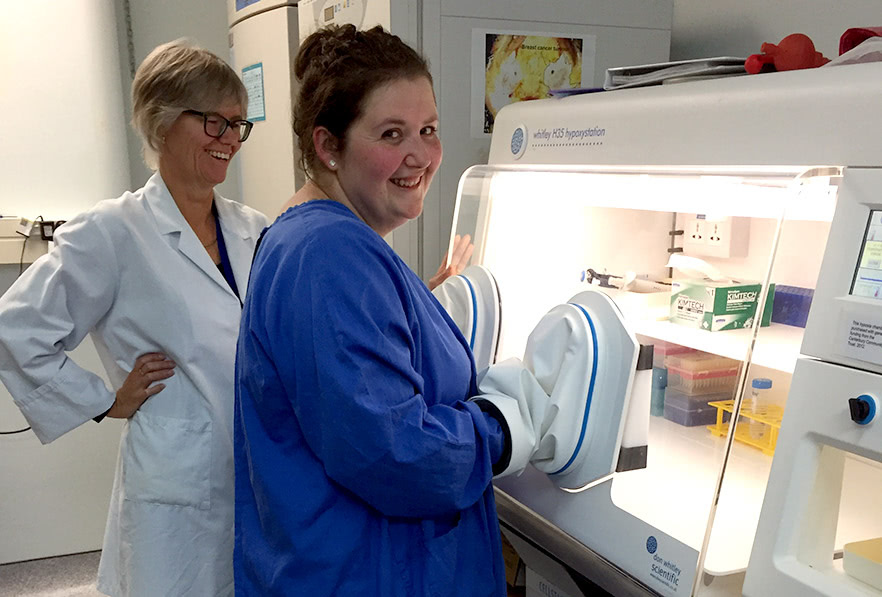Vitamin C and bowel cancer

Associate Professor Gabi Dachs and Dr Elisabeth Phillips: It is crucial to understand specifically how vitamin C affects cells, and whether or not it has a positive or negative impact on the growth of cancerous cells.
How vitamin C affects the basic make-up of bowel cancer cells is the focus of a new study by researchers at the University of Otago, Christchurch (UOC).
At the UOC and internationally, researchers are focusing their attention on the role of vitamin C in cancer progression and treatment. They have established that the vitamin controls a number of cellular functions that influence cancer growth and tumour aggression.
However, just how the vitamin has these effects is still unknown.
The Christchurch-based Mackenzie Cancer Research Group will address this question with a “discovery project” involving analysis of the vitamin's role in bowel cancer with the help of funding from the New Zealand Cancer Society.
Lead researcher Associate Professor Gabi Dachs and her colleague Dr Elisabeth Phillips will add vitamin C to bowel cancer cells and, using state-of-the-art mass spectroscopy analysis technology, will track how the addition of vitamin C changes the cells' biology.
They will compare cancer cells treated with and without the vitamin.
Dachs predicts that many factors inside the cancer cells will be affected by vitamin C. She says it is crucial to understand specifically how vitamin C affects cells, and whether or not it has a positive or negative impact on the growth of cancerous cells.